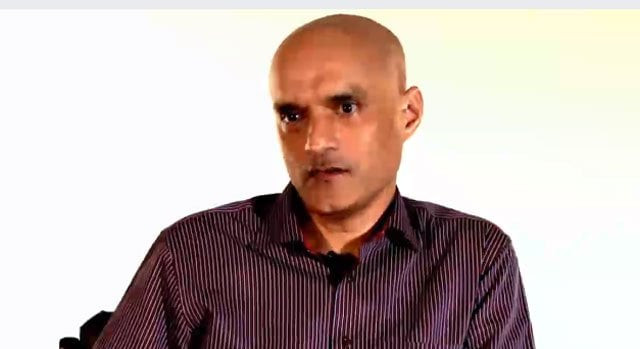Islamabad High Court highlights India’s double standards in Jadhav case
Gives New Delhi more time to appoint counsel for convicted spy

The Islamabad High Court (IHC) has noted that while India claims that appearing before a Pakistani court in Kulbhushan Jadhav case would compromise its “sovereign immunity”, it is at the same time actively pursuing cases of other spies and convicts in the IHC.
“They [India] are already before the court in other cases [of convicted spies and prisoners]; now they can’t shy away in this case,” said Justice Aamer Farooq, a member of the larger bench hearing a governmental application that asked the court to appoint counsel for the spy while reviewing his conviction by a military court.
Appearing before the bench, Attorney General for Pakistan (AGP) Khalid Javed Khan earlier said Indian High Commission in Islamabad was making deliberate efforts to avoid court proceedings.
The AGP told the bench that Pakistan is willing to extend one more opportunity of counselor access to the spy if India wants Jadhav to sign a power of attorney to start proceedings of the case.
Commander Jadhav, an operative of the Indian spy agency Research and Analysis Wing (RAW), was arrested from Balochistan in March 2016. A Field General Court Martial in Pakistan sentenced him to death on April 10, 2017 for fomenting terrorism in Balochistan and Karachi.
India later moved the International Court of Justice (ICJ) against the verdict and the ICJ on May 18, 2017 stayed the execution pending the final judgment on the case. On July 17, 2019, the ICJ rejected India's appeal for Jadhav's release but also ordered Pakistan to suspend the execution.
The ICJ also ruled that Pakistan will have to review the entire process of trial and conviction and provide India with consular access to the spy.
This year Pakistan promulgated ICJ (Review and Reconsideration) Ordinance, 2020 to comply with the ICJ verdict and the Ministry of Law on July 22 filed the application under the ordinance after the spy and Indian government refused to file a review appeal against his death sentence.
Reading from an earlier Indian ‘note verbale’, Khan argued India had raised several objections to the measures taken by Islamabad in the case and one of them was that appearing before a Pakistani court will compromise its sovereign immunity.
Khan said the government of India is pursuing cases of its other spies in the court but is presenting an argument of sovereign immunity in case of Jadhav. “They [India] don’t necessarily have to become a petitioner in the Jadhav case but could just provide assistance to the court,” he added.
Earlier, he said, the Indian High Commission had nominated Barrister Shahnawaz Noon in the case but later said that giving him vakalatnama would mean waiver of the sovereign immunity.
Head of the bench Justice Athar Minallah said the case was about giving effective review and reconsideration to Commander Jadhav, adding that India is already a party to the case before the ICJ.
“All we want is assistance from India through its high commission to implement the ICJ judgment in letter and spirit; how do we proceed,” the judge said, noticing that the Indian High Commission’s counsel in other Indian prisoners, Shahnawaz Noon, was present in the court to pursue the case.
The bench asked Noon to come to the rostrum and asked why the Indian government is reluctant to provide assistance in Jadhav case. Noon said both the governments have been communicating but India has certain reservations.
The counsel said he was provided a letter of authorization by the Indian High Commission to collect documents pertaining to Jadhav’s military court trial from the AGP office. However, the AGP office did not accept the authorization letter and sought a power of attorney from him.
“You should have come to the court to tell us about this development,” Justice Minallah said.
The AGP intervened and said all that the AGP office had requested was a valid document.
“The law states that there should be a vakalatnama or a power of attorney. The Indian High Commission has provided Noon vakalatnama in other cases and he has to have a valid authorization as per Pakistani law [for seeking trial details from the AGP office],” he added.
The CJ said the ICJ instructions said Pakistani laws will have to be followed and they can’t be exempted. Noon said he had spoken to the Indian High Commission and they have a meeting with New Delhi.
Seeing his reluctance to reply, Justice Minallah inquired if he wanted to take instructions from his client. Noon replied in affirmative.
APG Khan once again intervened and said the federal government would want Indian government to appoint a lawyer and not the IHC. He reiterated that India can avail the consular access offer.
Reiterating the question as to “how best and in what manner the ICJ judgment can be implemented”, Justice Minallah told Noon that India can come to the court if it needs any assistance in line with Pakistani laws and the ICJ judgment.
The court later granted three weeks’ time to the counsel to seek instructions from his client. The bench will now take up the case on December 1.



















COMMENTS
Comments are moderated and generally will be posted if they are on-topic and not abusive.
For more information, please see our Comments FAQ